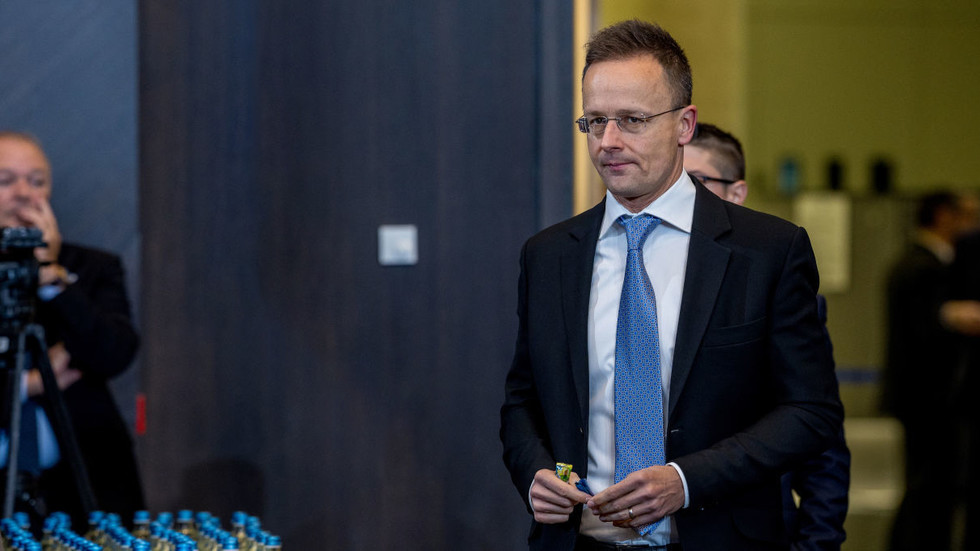As Christmas approaches, the tensions within the European Union (EU) regarding the ongoing conflict in Ukraine are becoming increasingly palpable. Hungarian Foreign Minister Peter Szijjarto has expressed concerns over a significant conflict brewing in Brussels related to the allocation of billions of euros intended for military support to Ukraine. In a post on social media, Szijjarto highlighted that during a key meeting of the EU’s Foreign Affairs Council, member states’ top diplomats would be discussing the release of over €6 billion for the procurement of arms to bolster Ukraine’s military capability. He commented, “Even the approach of Christmas cannot dampen the mood of war,” emphasizing that despite the festive season and discussions of possible ceasefires, the focus remains on aggressive military support.
In the backdrop of these discussions, Hungarian Prime Minister Viktor Orban had recently proposed a potential Christmas ceasefire along with a significant prisoner exchange between Russia and Ukraine. However, Ukraine has dismissed this proposal, indicating a lack of willingness to engage in discussions that might lead to a cessation of hostilities. Orban’s initiative garnered a supportive response from the Kremlin, with spokesperson Dmitry Peskov expressing hope that peace negotiations could continue in the spirit of the Hungarian proposal. Szijjarto lamented that the prevailing attitudes among EU diplomats lean towards increasing military support rather than fostering peace, stating, “We need a ceasefire in Ukraine, not more weapons!” This highlights Hungary’s and Slovakia’s opposition to the EU’s current policy on arming Ukraine, advocating instead for a diplomatic resolution to the conflict.
The scheduled meeting in Brussels marks a notable occasion as it is the first being chaired by the newly appointed EU High Representative for Foreign Affairs and Security Policy, Kaja Kallas. The Estonian diplomat, who took over from Josep Borrell on December 1, is known for her firm stance against Russia and has voiced her support for stronger sanctions. Kallas’s leadership during this pivotal meeting could influence the EU’s strategy in addressing not only the immediate military needs of Ukraine but also the broader implications of ongoing support in the context of challenges to peace in the region.
The EU’s approach towards Ukraine has garnered mixed reactions among its member states. While several countries remain steadfast in their commitment to providing military assistance to bolster Ukraine against Russian aggression, nations like Hungary are vocal about their preference for a peaceful resolution that avoids further escalation. The financial support for arming Ukraine, as proposed, signifies a commitment to continued military engagement rather than a pivot towards negotiations. This divergence in opinions reflects the layered complexities of international relations within the EU and raises questions about the long-term ramifications of military aid versus diplomatic efforts.
Given the escalating discourse surrounding this military support, there is a palpable divide between those advocating for continued arms supply to Ukraine and states calling for immediate cessation of hostilities. The Christmas season, typically associated with peace and goodwill, contrasts sharply with the discussions taking place in Brussels. Szijjarto’s comments serve as a wake-up call, reminding policymakers of the need for a balanced approach that considers the humanitarian consequences of continued military engagement in Ukraine. The stakes are high; both the potential for a ceasefire and the resolution of the conflict could hinge on the outcomes of the EU meeting.
Overall, the situation remains fraught with tension as a clear line is drawn between military support for Ukraine and the calls for a more diplomatic approach to resolving the ongoing conflict. The decisions made in the upcoming EU Foreign Affairs Council meeting could have significant implications for the relationship between EU member states, Ukraine, and Russia. As the festive season approaches, the challenge will be finding a way to promote peace rather than prolonging a cycle of violence and rearmament, raising critical ethical questions about the role of nations in fostering a sustainable peace in the region.

